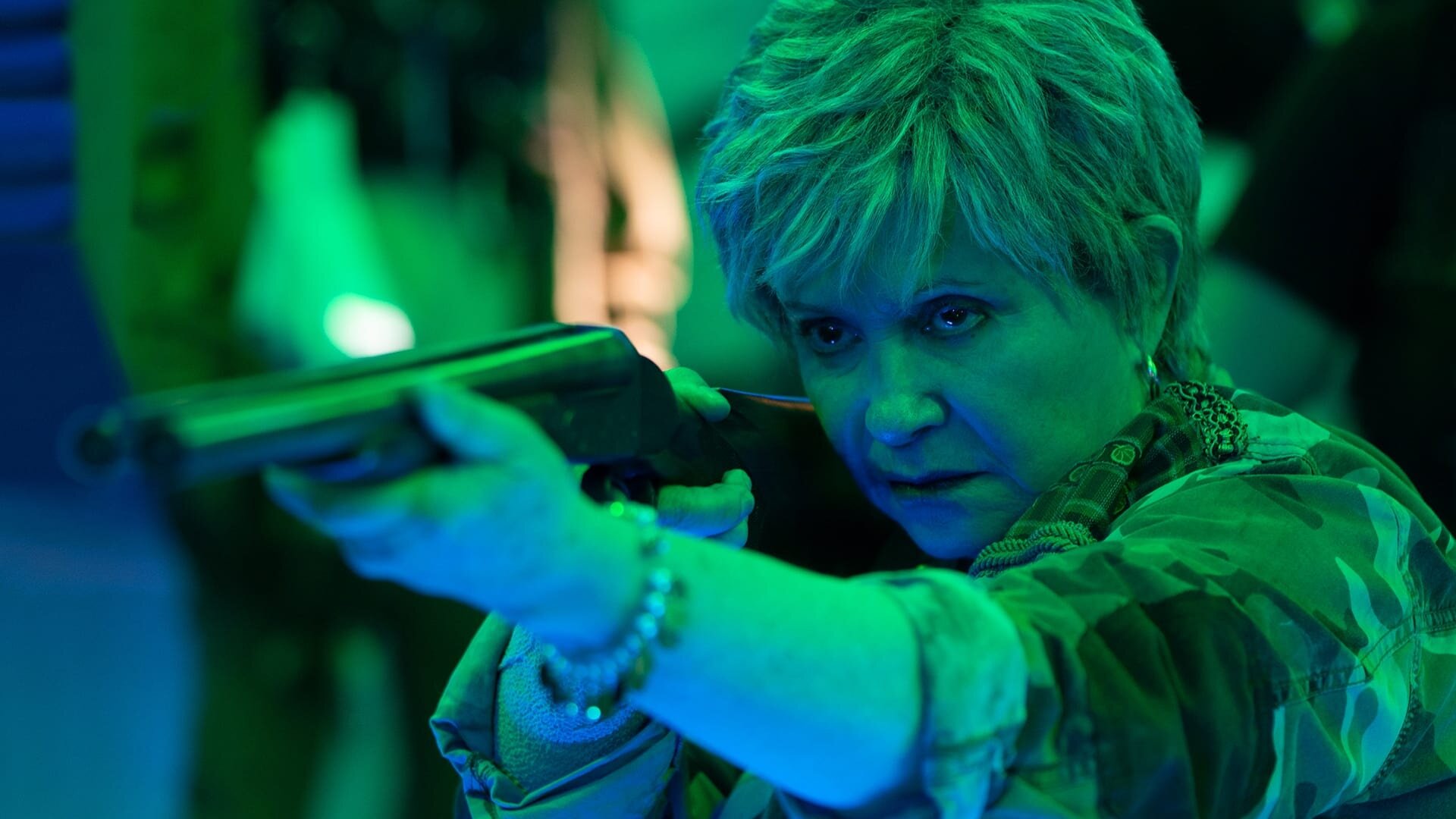Bingo Hell
Amazon StudiosGigi Saúl Guerrero creates and adapts a great menace to the horrors found within Bingo Hell. There is nothing scarier than gentrification: wealthy characters moving into renovated places in poorer districts, driving up the market value. Nothing strikes more fear in the hearts and minds of any audience member than seeing upscale homes crop up in once-affordable areas. Homeowners beware, for Bingo Hell is coming for you. Or, at least, wishes to tell the tale of stubborn, elderly comrades who unite their forces to stamp down against the urban renewal. A rebellion arises as the horribly crooked and inevitably psychotic elites try and stamp down the so-called dirt.
While that comedic clash of two generations comes together clearly enough, the observations of such a storyline make little sense. Bingo Hell gets a little bingo hectic. Manic characters who are hard to like but easy to be carried away with dominate the screen. They are ticked off by the new generation moving in, what with their coffee and their books and their fashionable, trendy sense. Not in this neighbourhood. Elderly agents in waiting are out for vengeance once they realise their beloved bingo hall is to be sold to an entity outside their influence. To be fair, what influence do these old coots actually have? They are shown to be blithering, redundant, and not at all that interesting. They do not have the tender niceties of the usual old-aged protagonists, because if they did the horror would not work. The trade-off, then, is a group of characters who can pull a punch but cannot push much personality.
A shame, too, especially considering the clear effort from Guerrero. Everything is planned out rather tastefully and professionally, too; it is hard sometimes to underline the efforts of independent creatives. Bingo Hell may not be the best-explained narrative for the horror genre, but it does yield unique results and a definitely consistent director in waiting. Bide your time, give it a go again and again, because what Guerrero proves throughout this feature is that she certainly has enough know-how of not just what makes an audience tick, but why it does so. Welding the two together is the tricky part, and while Guerrero understands both, she is unable to tie the knot between them in a convincing enough manner.
Pensioners facing off against the new generation, Bingo Hell is filled with effort and variety yet loses focus of that generational power struggle. Its horror never dictates the narrative, and such a story feels extremely loose and tries to create uncomfortable scenes out of moody lighting, rather tame and unconvincing special effects and odd acts of mania. It is the struggle Guerrero has in making the horror convincing that leaves Bingo Hell high and dry. This state of horror is insurmountable. What Guerrero and her cast fail to realise is that for every tightly shot, moodily lit scene of clueless characters meeting their maker, there must be at least some reason or contingency behind it. Not for the elderly ensemble found within, whose sole purpose appears to be to prove that old age does not make for a vulnerable one.


